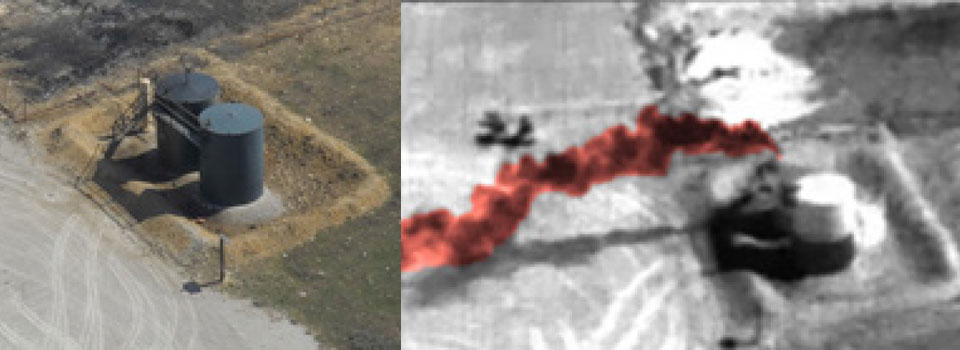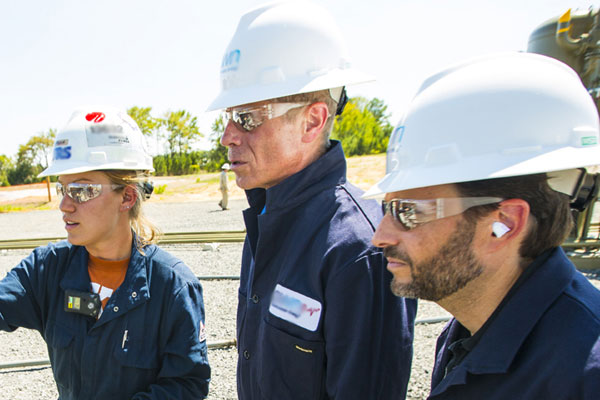Reducing pollution requires smart regulations
With the right standards, Pennsylvania could reduce pollution by up to 60%

Aerial infrared photo of methane leaking from a natural gas site. Methane shown enhanced in red.
Multiple analyses have shown that cost-effective technologies and best management practices can reduce a vast majority of the oil and gas industry's methane pollution if implemented at new and existing facilities.
What can Pennsylvania do? Enact strong regulation. Other states – California, Colorado and Wyoming – have implemented regulations to reduce methane and volatile organic compounds from oil and gas facilities by requiring operators to implement best practices and cost-effective technologies. These include:
- Regular Leak Detection: Checking oil and gas sites for leaky equipment at least once every quarter is one of the most cost-effective ways to reduce pollution.
- Replace high-emitting equipment: Pneumatic pumps and controllers can be big sources of pollution, replacing these with "low" or "no-bleed" technology can reduce 98% of emissions from these sources.
- Comprehensive controls: Applying pollution reduction strategies to all wells – new and existing, as well as both conventional and unconventional well types – ensures maximum public health benefits.











